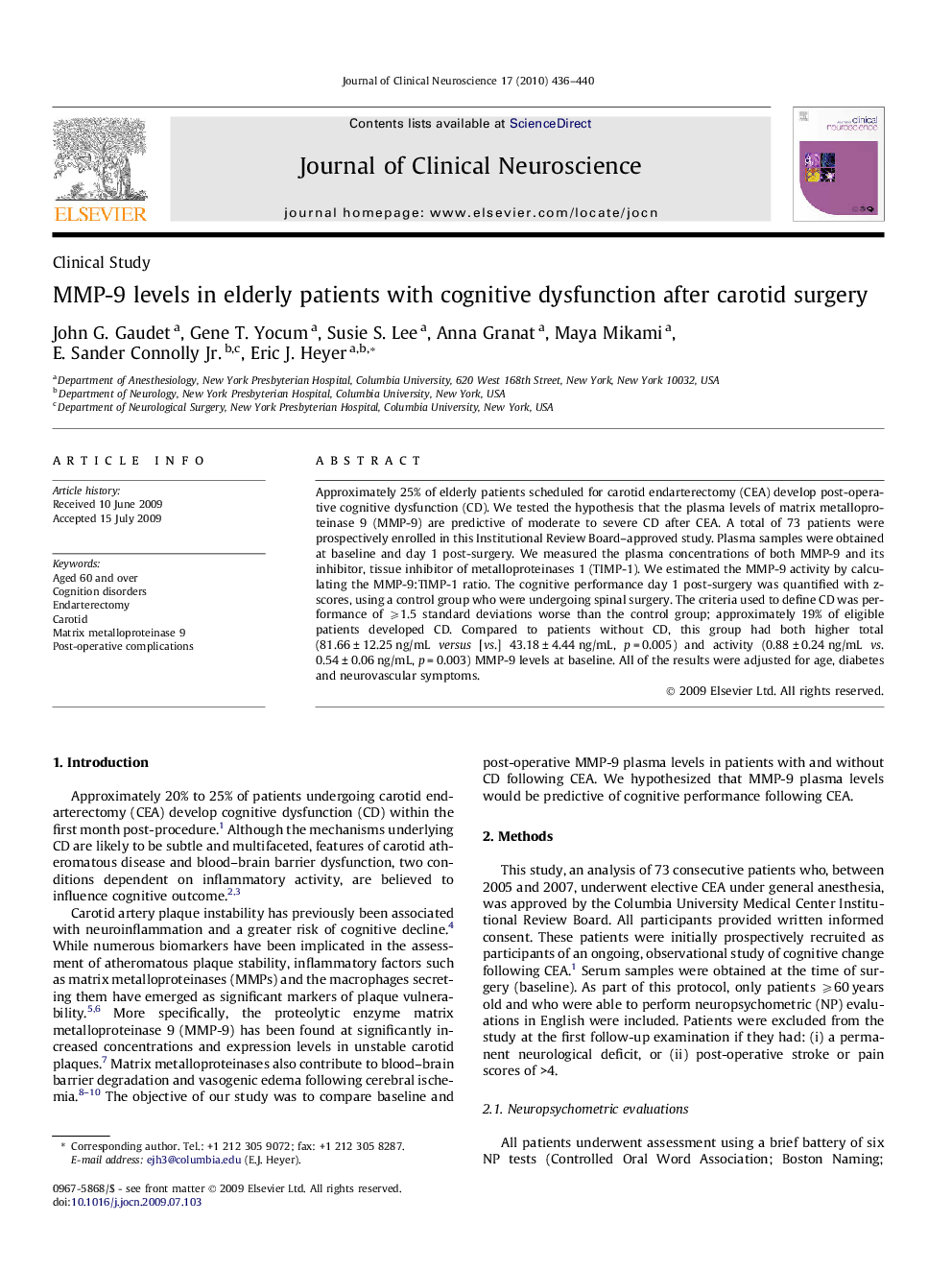| Article ID | Journal | Published Year | Pages | File Type |
|---|---|---|---|---|
| 3061571 | Journal of Clinical Neuroscience | 2010 | 5 Pages |
Approximately 25% of elderly patients scheduled for carotid endarterectomy (CEA) develop post-operative cognitive dysfunction (CD). We tested the hypothesis that the plasma levels of matrix metalloproteinase 9 (MMP-9) are predictive of moderate to severe CD after CEA. A total of 73 patients were prospectively enrolled in this Institutional Review Board–approved study. Plasma samples were obtained at baseline and day 1 post-surgery. We measured the plasma concentrations of both MMP-9 and its inhibitor, tissue inhibitor of metalloproteinases 1 (TIMP-1). We estimated the MMP-9 activity by calculating the MMP-9:TIMP-1 ratio. The cognitive performance day 1 post-surgery was quantified with z-scores, using a control group who were undergoing spinal surgery. The criteria used to define CD was performance of ⩾1.5 standard deviations worse than the control group; approximately 19% of eligible patients developed CD. Compared to patients without CD, this group had both higher total (81.66 ± 12.25 ng/mL versus [vs.] 43.18 ± 4.44 ng/mL, p = 0.005) and activity (0.88 ± 0.24 ng/mL vs. 0.54 ± 0.06 ng/mL, p = 0.003) MMP-9 levels at baseline. All of the results were adjusted for age, diabetes and neurovascular symptoms.
